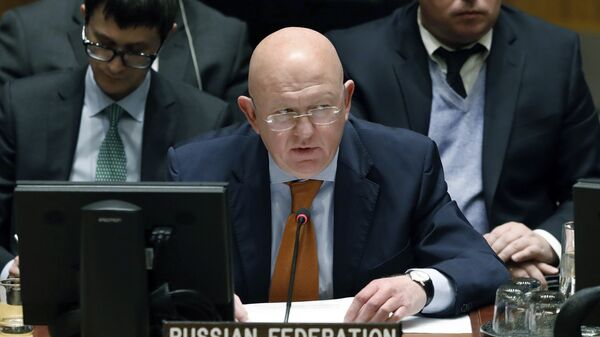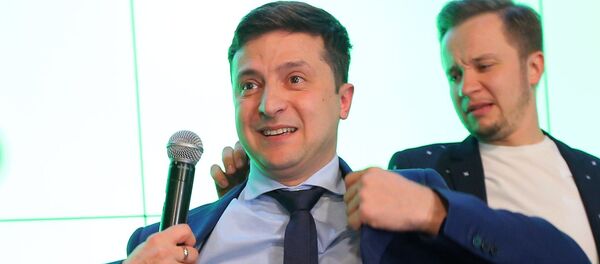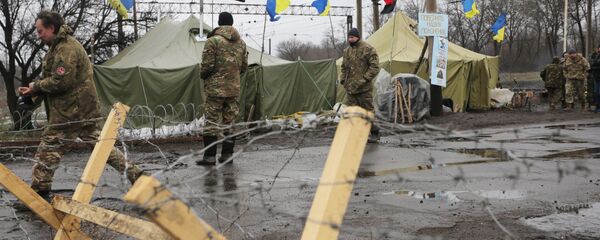Earlier in the day, the UNSC rejected Russia's request to hold a meeting on the recently-enacted Ukrainian language law, which Moscow said runs counter to the Minsk agreements.
"We are once again confirming that you are not interested in the Ukrainians at all, you are only interested in your geopolitical agenda and to hit Russia as hard as possible. I want to thank you very sincerely for this blatant demonstration of double standards", Nebenzia said Monday.
READ MORE: Trump’s Lawyer Giuliani Cancels His Trip to Ukraine
Nebenzia stated, however, that by enacting the language law, Ukrainian authorities are introducing a form of inquisition in the country that will create a hostile atmosphere between Ukraine and Russia.
"The task of any government and authorities is to, in fact, seek to contribute to cohesion, meanwhile, what the current authorities are doing is introducing an inquisition. They are putting a ticking bomb on Ukrainian society and neighboring states, and this is very dangerous", the diplomat noted.
Last week, former Ukrainian President Petro Poroshenko signed into law "On ensuring the functioning of the Ukrainian language as a state language" which envisages the use of the Ukrainian language in almost all spheres of life. The parliament adopted this law in late April, but the political opposition demanded its repeal, citing procedure and constitution violations. Parliament refused to repeal the law, however.
READ MORE: Saakashvili Claims Poroshenko Planned to Swap Crimea for NATO Membership
Russian Foreign Minister Sergey Lavrov noted that the law provides for exceptions for English and other EU languages, saying that "this means that the only target of the attack is the Russian language, which is spoken by the vast majority of Ukrainian nationals", and which is native to many.
“Today, in his inaugural speech, Zelenskiy spoke out against attempts to split Ukrainian society by language. There is no doubt that this should fully extend to the religious sphere, including in the wider context of the comprehensive implementation of the Minsk agreements on overcoming the internal Ukrainian conflict", Lavrov said.
The conflict in the southeast of Ukraine began in 2014 after Kiev launched a military operation in the Donbass region following a refusal by its residents to recognize the new government, which seized power after the overthrow of then-President Viktor Yanukovych. In February 2015, warring parties signed the Minsk peace accords to end hostilities in the region, but the situation has remained tense, with both parties accusing each other of ceasefire violations.
READ MORE: Kiev Claims of Taking Control Over Neutral Donbass Zone is Provocation — Moscow






